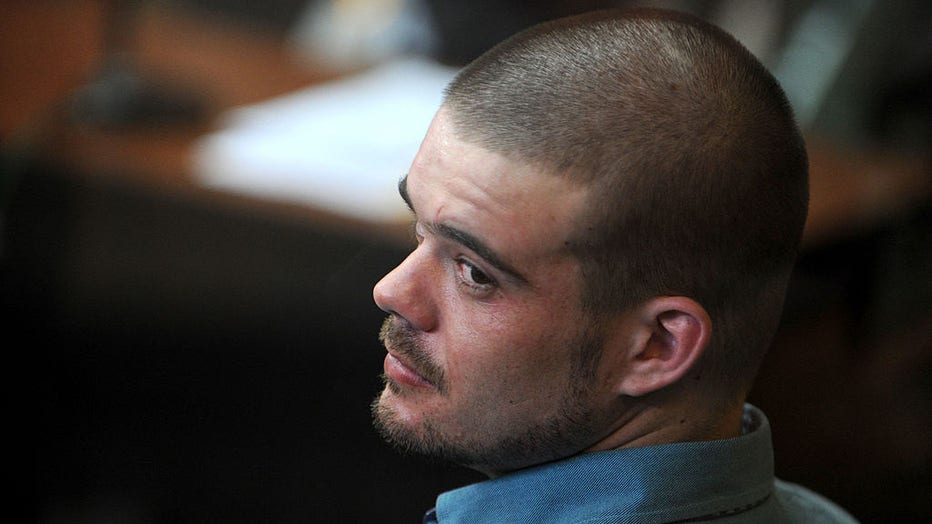Natalee Holloway case update: Joran van der Sloot moved to new prison ahead of extradition
LIMA, Peru (AP) - The chief suspect in the unsolved 2005 disappearance of American student Natalee Holloway is being transferred to a prison near Peru's capital ahead of his pending extradition to the United States to face charges linked to her vanishing, officials said Saturday.
The government of Peru, where Dutch citizen Joran van der Sloot was serving a 28-year sentence for the murder of a Peruvian woman, authorized his extradition to the U.S. in May.
Máximo Altez, van der Sloot’s lawyer, said is client was being taken by land from the Challapalca prison in Peru's southern Andes to the Piedras Gordas prison on the outskirts of Lima.
"In the coming days, the INPE (National Penitentiary Institute) will hand over the condemned man to Interpol Peru with the goal of handing him over to U.S. authorities from the FBI," said a statement from the INPE released Saturday.

Dutch national Joran van der Sloot is pictured during a hearing at the Lurigancho prison in Lima on January 11, 2011. (Photo: Ernesto Benavides/AFP via Getty Images)
Altez said that once the bureaucratic procedures are completed and van der Sloot is given a medical exam, his client will be transferred to the U.S. He estimated the extradition could take place on Tuesday, but Peruvian officials did not confirm this day.
Van der Sloot has agreed to be sent to the United States where he faces trial for alleged extortion and wire fraud charges linked to the Holloway case, his lawyer said.
When asked by the Associated Press why his client agreed, the lawyer responded: "He is imprisoned in the worst prison in the world," referring the maximum-security Challapalca prison.
"Any prison in the United States is a five-star hotel" in comparison, he said.
Altez said that, according to the treaty between Peru and the United States, van der Sloot is being extradited to the U.S. temporarily for one year to face legal proceedings and in the event of a delay, this period can be extended for another year.
"At the end of this, he has to be returned to Peru," Altez said. He will spend "at most two years in the United States."
Altez said his client denies being guilty of the crimes of extortion and fraud.
Holloway, who lived in suburban Birmingham, Alabama, was 18 when she was last seen during a trip with classmates to the Caribbean island of Aruba. She vanished after a night with friends at a nightclub, leaving a mystery that sparked years of news coverage and countless true-crime podcasts. She was last seen leaving a bar with van der Sloot, who was a student at an international school on the island.
Van der Sloot was identified as a suspect and detained weeks later, along with two Surinamese brothers. Holloway’s body was never found, and no charges were filed in the case. A judge later declared Holloway dead.
The federal charges filed in Alabama against van der Sloot stem from an accusation that he tried to extort the Holloway family in 2010, promising to lead them to her body in exchange for hundreds of thousands of dollars. A grand jury indicted him that year on one count each of wire fraud and extortion, each of which is punishable by up to 20 years in prison.
Also in 2010, van der Sloot was arrested in Peru for the murder of 21-year-old Stephany Flores, who was killed five years to the day after Holloway’s disappearance.
Peruvian prosecutors accused van der Sloot of killing Flores, a business student from a prominent family, to rob her after learning she had won money at the casino where the two met. They said he killed her with "ferocity" and "cruelty," beating then strangling her in his hotel room. He pleaded guilty in 2012.
Van der Sloot married a Peruvian woman in July 2014 in a ceremony at a maximum security prison. He has been transferred from prisons in response to reports that he enjoyed privileges such as television, internet access and a cellphone, and accusations that he had threatened to kill a warden.
A 2001 treaty between Peru and the U.S. allows a suspect to be temporarily extradited to face trial in the other country. It requires that the prisoner "be returned" after judicial proceedings are concluded "against that person, in accordance with conditions to be determined by" both countries.


